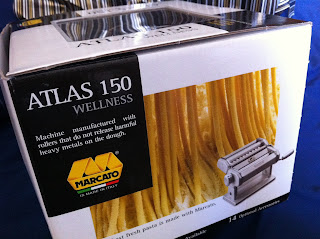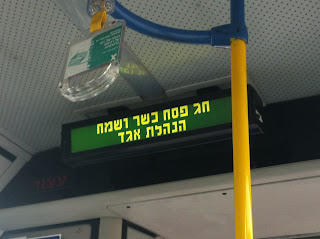What is unique about Pesach (Passover) in Israel, that makes it markedly different than anywhere else in the world, is that it is a week-long national holiday. Yes, it is a week long holidays for Jews all over the globe, but nowhere else quite compares to a whole country going on a week-long vacation at the same time. This phenomenon is called: chol-hamoed Pesach (the intermediary days of Passover), aka the days when everyone and their mother decides to travel. The closest thing to compare it to is imagining you had American Thanksgiving, followed by a 5 days of the 4th of July, followed by another, smaller low-key, Thanksgiving (with Shababt thrown in the middle there too). The results of this are festivals, attractions and national parks that are filled to the brim, lots of time to spend with friends and family and ultimately, roads that are constantly jammed (and consequently, not so safe). Matt and I decided to live it up this Pesach + chol-hamoed. Here are a few of our highlights:
Let's start at the beginning, which is actually the day before the holiday begins. One of the practices of the holiday is to rid your home of any leavened grain products known aschametz. This includes bread, cakes, pasta, etc. For about a month already, we had been eating down our pantry stock-pile of leavened products so that we would have as little left as possible come the start of Passover. While it is permissible to "sell" whatever chametz you were you unable to finish off, if throwing it out would cause you financial loss (and reclaim it at the end of the holiday), the tradition is to actually burn any leftover chametz the morning before Pesach begins. What this practically looks (and smells) like is large communal piles of burning bread on many residential street corners. You know Passover is coming when, wherever you go, you can't escape the smell of toast. A big thank you to the city of Haifa for putting out metal garbage cans for this purpose (the regular city plastic bins have been known to melt in these circumstances). A big ... (what's the opposite of thank you?) to all my neighbors who brought their chametz to burn in plastic bags and also threw their plastic bags on the fire! But a hearty thank you to the big, white-bearded haredi/ultra-orthodox man, who stood on the street corner yelling at everyone who threw plastic on the fire.
On my way home from chametz burning a little haredi/ultra-orthodox boy, maybe 7 or 8 years old, approached me carrying one of those big 5-pack boxes of matzah. He looked up at me with his bespectacled eyes and asked: "Do you eat this?" My immediate response was "Sure, I eat matzah on Passover (duh?)" He then followed up with "cause we can't eat this because it's not Badatz (a more stringent form of kosher supervision), so do you eat matzah that's not badatz?" I thought to myself: "of course I do" which must have come across in my eyes, because before I knew it I was standing on the street corner holding a 5-pack box of matzah watching this kid running back down the street. Unfortunately, we are now left with more matzah than we know what to do with because we already had a 5-pack box at home and since we were barely home for the holiday we only actually ate through one pack... guess we'll be eating matzah for a while.
We headed off to Tel Aviv for seder where we were joined by Matt's Aunt, Uncle and cousins at a family friend's house. It is definitely hard to be far away from our immediate families during the holidays, but we are lucky to have some family and many friends that feel like family, here is Israel. Our seder hosts' five-and-a-half year old twin daughters really hit that point home for us. When we asked them the next day if the people we were going to visit were friends of their mom and dad (we already knew the answer was yes), they looked us straight in the eyes and said: "No, they're our family." While we could never replace our actual families we are thankful to our extended family and family-friends who help up fill the void.
The next few days were spent traveling the country - from Tel Aviv, back to Haifa and then on to Jerusalem. We had many adventures and note-worthy experiences, but you'll have to wait until next week and "Pesach Part II" to hear about them. I will leave you with one short exciting encounter: our first Israeli celebrity sighting! As we were walking through the streets of Tel Aviv, past cafes and restaurants, Matt ran up to me yelling: "I saw Chaim! It's Chaim!" I started racking my brain... who is Chaim? Who do we know named Chaim that would be in Tel Aviv right now? Turns out, that the actor that plays a character named Chaim on the TV show "חטופים"/"Hatufim" ("Prisinors of War" - which is the Israeli show that "Homeland was based off of), which we recently finished watching, had just walked into a restaurant. Not 100% sure it was him, Matt told me to run back and check, so I did and lo and behold, it really was him. Matt was amused at how star-struck he was, especially after growing up in LA, but for us to even recognize local actors (who don't carry such high celebrity status) is a minor accomplishment as new Israelis.
Chag Pesach Sameach and Happy Easter to all who are celebrating today,
Stef and Matt




.JPG)
.JPG)
.JPG)
.JPG)
.JPG)

